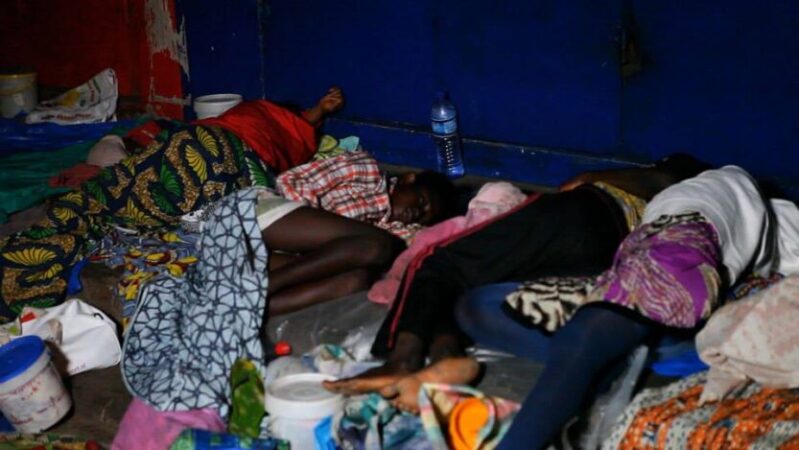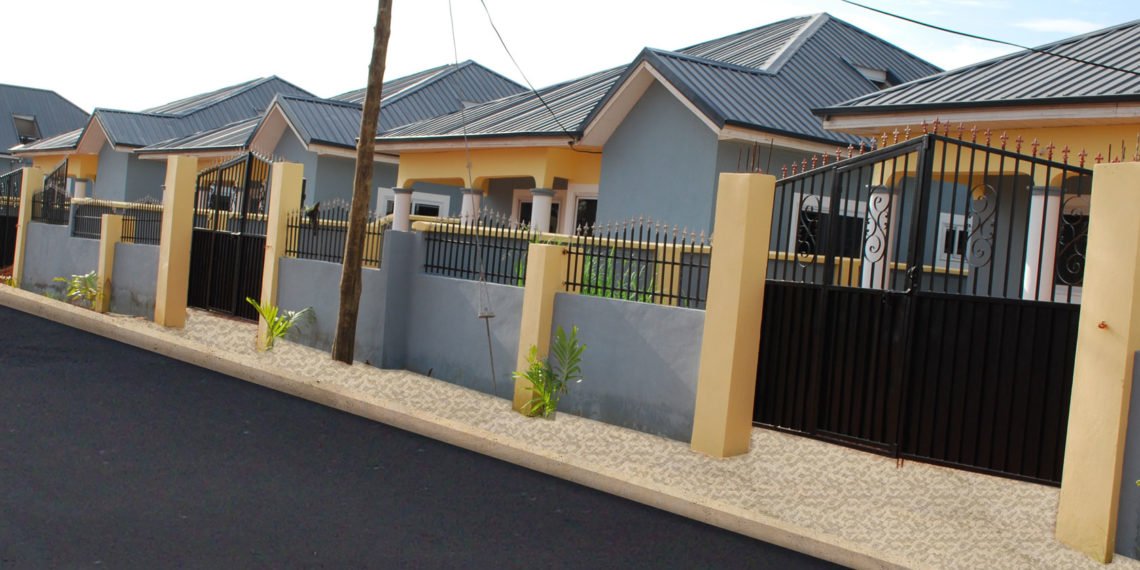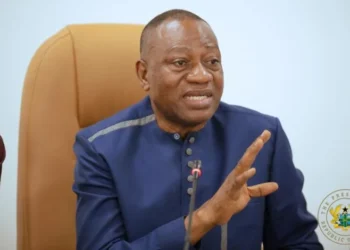Research has shown that Housing is a crucial factor in the development of every economy. Adequate housing provides shelter and also contributes to household health and income. On the other hand, inadequate housing produces stress within households, contributes to child health problems and poor performance of children in schools, additional research has shown.
The housing stock in Ghana is inadequate and challenged with overcrowding, congestion, housing decay and blight in some neighbourhoods. Data from the Ghana Statistical Service (GSS) shows that about 58 percent (57.3%) of households in Ghana live in compound houses and in the Greater Accra region for example, close to three- quarters (73%) of households live in compound houses.
According to the National Housing Policy (NHP) in 2015, with an urban mean household size of 4.75 persons, the population growth is likely to add two million extra urban households by 2020.
The Housing Profile in 2015 had estimated roughly that just to clear the shortfall in the number of rooms available for occupation in urban Ghana, thus, going by the preferred maximum occupancy of two persons per room, a total of 7.2 million extra rooms were required by 2020 to be able to address the deficit and accommodate the new households.
The GSS attributed this challenge largely to rapid population growth particularly, increasing urbanization, cumulative effect of housing deficit and poor maintenance over the years.
The shortage in the supply of housing units, as basic economic theory suggests, has resulted in an unprecedented increase in rent especially in urban Ghana. To add salt to injury, landlords now demand a minimum of two years advance payment from prospective tenants.

Surprisingly, political parties have over the years made several promises that they believe will help address the housing shortfalls. But the problem still persists and is becoming worse by the day.
As has been the norm, in the race to the Jubilee House this year, the two major political parties in Ghana; the New Patriotic Party (NPP) and the National Democratic Congress (NDC) have all made promises which are aimed at bridging the huge housing deficit in Ghana as well as making it affordable to the ordinary Ghanaian.
The NPP states in its 2020 manifesto that it will establish a National Rental Assistance Scheme (NRAS) in their next term of office.
The aim of the NRAS, according to the NPP, is to address the short-to-medium term market failures in the renter-segment of the housing market.
Under the scheme, the next NPP government states that it will seed the Scheme with GH¢100 million which will be leveraged to crowding additional investment from the private sector.
The next NPP government indicates that it will enter into a partnership with the private sector to provide low-interest loans to eligible Ghanaians to enable them pay rent advance.
According to the NPP, these loans will be repaid on a monthly basis to match the tenor of the rent, and will be insured to ensure sustainability.
The Scheme, when implemented, will target individuals (both in the formal and informal sectors) with identifiable and regular income. The NPP explained that the rent advance loans will be paid directly into the bank accounts of landlords, who would have to register with the Scheme.
Furthermore, the NPP states that, as part of its interventions, it will implement the necessary regulatory, institutional, and operational reforms of the Rent Control Department, including the digitisation of their operations, to enhance delivery, and make it better able to serve the changing needs of market players, including landlords and tenants.
The NPP further said that the housing deficit in the country is particularly acute for low income households. To address this segment of the market, the next NPP government says it will build low-income housing estates over the next four years, using local materials by working with the Building and Roads Research Institute and private developers.
Conversely, the NDC in its 2020 manifesto states that when voted into power come December 7, it will, over a four (4) year period roll out an aggressive social housing plan.
The aim of the plan, according to the NDC, is to deliver a minimum of twenty thousand (20,000) low-income houses in all 260 Metropolis, Municipalities and Districts.
As part of its social housing projects, the largest opposition party says, it “will also implement a National Mortgage Assistance Scheme (NMAS) and rent-to-pay agreements over fifteen to twenty years for public sector workers and workers in private employment.
The NDC pointed out that the Social Housing projects will be constructed in all districts of the country and MMDA’s will work with traditional authorities to acquire lands for the project. The NDC indicated that a way of compensating the traditional authorities for their value of land that will be acquired, a number of the units will be allocated to these traditional authorities.
Labour and raw materials for these housing projects were to be sourced from these localities.
“As much as practicable, all materials for the housing project will be sourced locally. Companies contracted to work on these houses will be indigenous Ghanaian owned companies doing business in the districts where the projects are located. Workers will be drawn from the local community and training will be provided for these workers”.
Additionally, the next NDC government says it will also; consistent with its “2016 Manifesto promise, establish a low-interest Rent Advance Scheme in partnership with financial institutions/banks holding for both formal and informal sector workers with regular incomes;
“And establish a regulatory body to set and enforce standards management, quality control and capacity development in the built environment”.
As citizens, tired as we may be concerning unfulfilled promises by political parties especially the NDC and NPP, we will have no choice than to choose between these two policies laid before us.
The choice made will determine which of the policy is implemented. The availability of an efficient housing system is capable of delivering adequate housing to meet the needs of the citizenry and is thus essential for the development of a nation.
“The major challenge facing the housing sector in Ghana is the development of a strategy in the short term to address the huge housing deficit, and in the medium to long term, ensure that the citizenry, particularly the low-income sector of society, are able to access housing either through ownership or rental purposes”– NHP.
But the question that every single eligible Ghanaian voter must ask is: are these policies sufficient to provide a total of 7.2 million extra rooms that are required by 2020 to be able to address the housing deficit? If yes, which of the polices is potent enough to make this happen?























